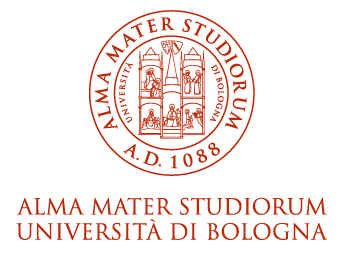Cultural Anthropologist
Job role in a professional context
Designs and supervises research projects, analyzes ethnographic data, and disseminates research results. Can perform functions in the following work areas:
- Intercultural Mediation: Holds responsibilities in the design, implementation, and evaluation of investigations and interventions related to intercultural and interreligious mediation to promote the integration of socio-cultural and religious differences; works as a consultant on intercultural issues in educational, social, healthcare, and legal contexts; plans, leads, and implements training and professional development courses on intercultural topics for public institutions (schools, healthcare and social services, law enforcement, prisons, etc.) and private organizations (associations, non-profits, etc.).
- Cultural Heritage: Produces ethnographic data and materials for cultural activities and museum projects aimed at promoting and safeguarding tangible and intangible heritage at local and national levels; plans and promotes initiatives in cultural and environmental heritage tourism.
- International Cooperation: Designs forms of cooperation and participatory interventions in contexts characterized by socio-cultural and/or religious diversity; works as a consultant on humanitarian and international cooperation projects.
- Research: Designs, conducts, and supervises anthropological research activities for public and private institutions.
The Master’s Degree in Cultural Anthropology and Ethnology can effectively prepare graduates for further specialization through postgraduate professional courses such as second-level Master’s degrees and specialization schools in anthropology subfields, cultural mediation, and development cooperation.
The program also provides the necessary skills to access PhD programs in the humanities, particularly in the field of cultural and social anthropology, in Italy and abroad.
Skills related to the role
- Ability to design, plan, and conduct ethnographic research;
- Ability to analyze and communicate ethnographic findings;
- Ability to work in contexts of linguistic, cultural, and religious diversity;
- Ability to coordinate a multidisciplinary research team;
- Ability to interact with various stakeholders;
- Ability to apply anthropological knowledge in institutional settings;
- Capacity for independent work and personal initiative;
- Ability to network and build professional relationships;
- Ability to identify and develop cultural programs for specific audiences.
Job opportunities
- Public institutions, private companies, and third-sector organizations;
- Associations and organizations in the fields of social, educational, health, and welfare services;
- Museums and institutions working in cultural heritage preservation and cultural tourism;
- International organizations, NGOs, foundations, and research bodies.
Ethnographer
Job role in a professional context
Works in the field collecting ethnographic data. Can operate in the following sectors:
- Intercultural Mediation: Conducts field research on migration, intercultural issues, and religious dynamics.
- Cultural Heritage: Collects, organizes, and catalogs ethnographic data and materials for museum exhibitions and tourism promotion activities.
- International Cooperation: Conducts ethnographic research in the context of humanitarian and cooperation projects.
The Master’s Degree in Cultural Anthropology and Ethnology is an excellent foundation for further specialization through second-level Master’s degrees and professional schools in anthropology, cultural mediation, and development cooperation.
It also provides qualifications to apply for doctoral programs in humanities, particularly in anthropology, both in Italy and abroad.
Skills related to the role
- Ability to conduct ethnographic research;
- Ability to work in culturally and religiously diverse contexts;
- Ability to interact with stakeholders;
- Independence and personal initiative;
- Networking and relationship-building skills;
- Ability to work collaboratively and in multidisciplinary teams;
- Writing and communication skills for ethnographic data.
Job opportunities
- Public institutions, private companies, and third-sector organizations;
- Associations and organizations in social, educational, health, and welfare services;
- Museums and cultural institutions involved in heritage preservation and tourism;
- International organizations, NGOs, foundations, and research institutions.
Anthropologist of Religions
Job role in a professional context
Focuses on the historical and anthropological analysis of religious practices, knowledge, and texts, and their relation to contemporary ethical issues and intercultural dynamics. Can work in the following fields:
- Research: Conducts research for public and private institutions on religious pluralism, both in a historical perspective and in relation to current social relevance.
- Cultural Heritage: Handles analysis, organization, and cataloging of religious heritage data and materials in museum and ecclesiastical settings.
The Master’s Degree in Cultural Anthropology and Ethnology provides excellent preparation for further specialization through second-level Master’s programs and specialization schools in the fields of religious studies, heritage management, and archival studies.
Skills related to the role
- Ability to design and conduct historical-anthropological research on religious themes;
- Ability to apply historical-anthropological research methods to source analysis;
- Ability to analyze and communicate research outcomes;
- Ability to work in diverse linguistic, socio-cultural, and religious contexts;
- Coordination of multidisciplinary research teams;
- Stakeholder communication and engagement;
- Application of anthropological knowledge in institutional processes;
- Autonomy and personal initiative;
- Networking and relationship-building;
- Ability to identify and promote cultural initiatives for specific needs;
- Skills for working in archives.
Job opportunities
- Public institutions, private companies, and third-sector organizations;
- Associations and organizations engaged in interreligious mediation;
- Museums and cultural institutions promoting religious heritage;
- International organizations, religious bodies, NGOs, foundations, and research institutions.
Further Studies
Graduates can pursue third-cycle studies (PhD programs and specialization schools) and second-level Master's degrees.
